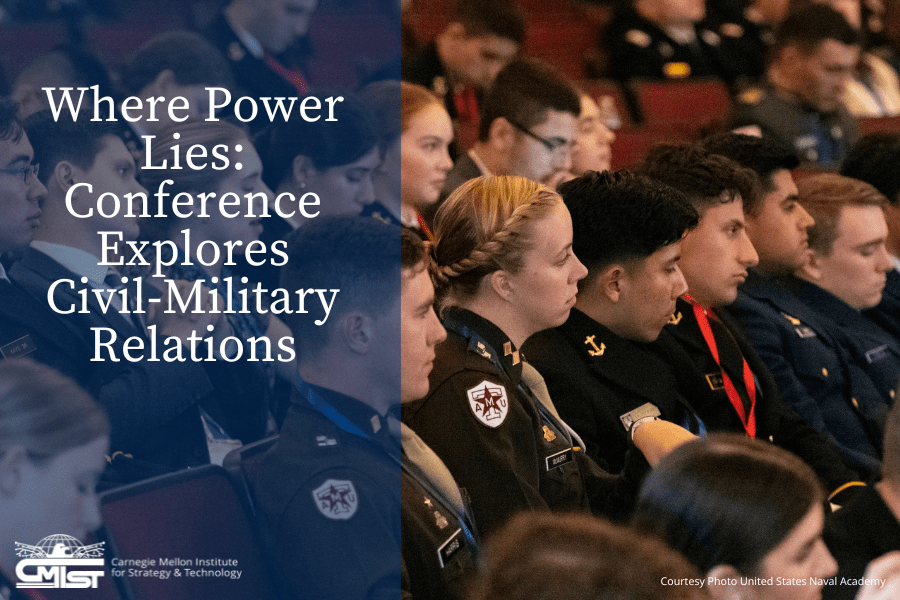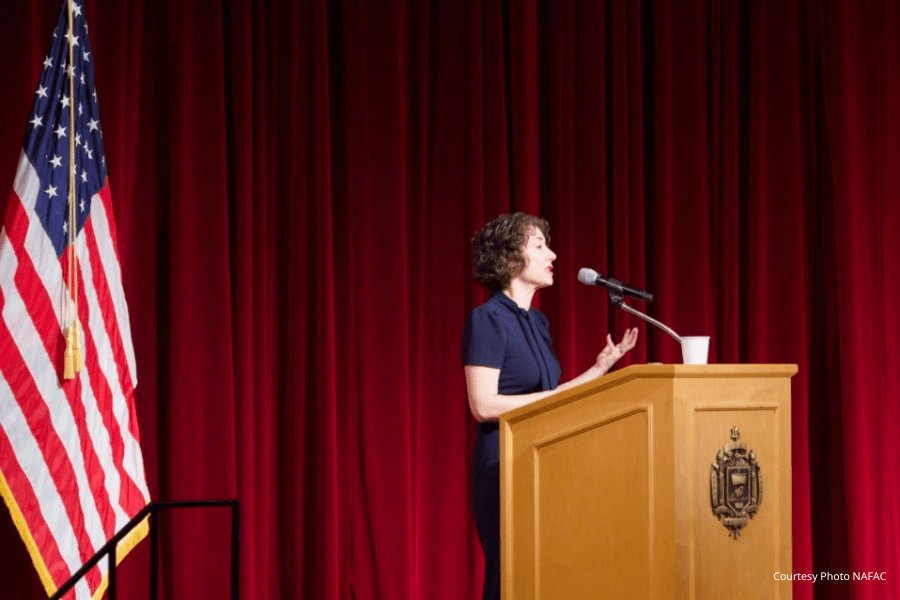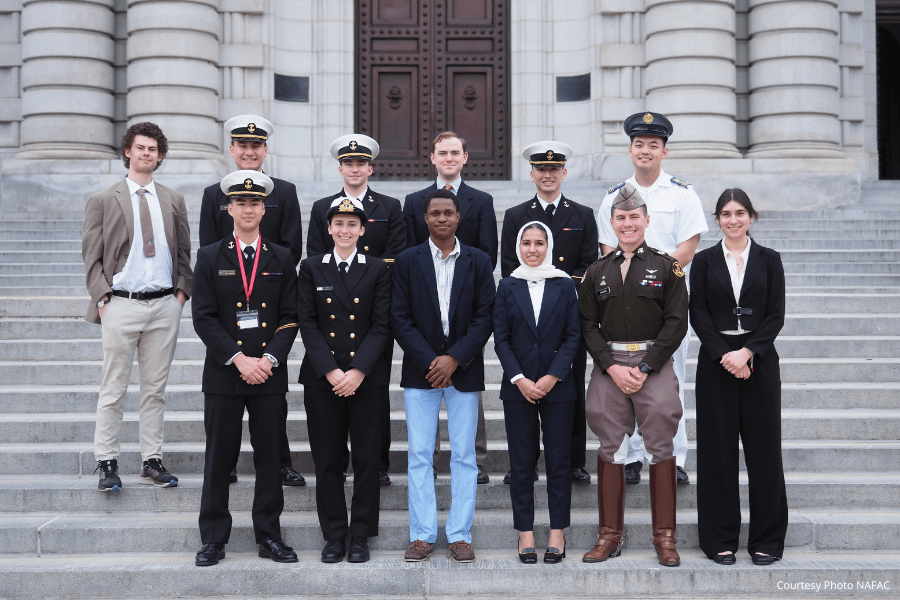
Where Power Lies: Conference Explores Civil-Military Relations
By Catherine (Ekaterini) Vassiliadi
Media Inquiries- Communications Specialist
In April, civilians and military officers from around the globe convened in Annapolis, Maryland for the 64th annual United States Naval Academy Foreign Affairs Conference (NAFAC). Exploring concepts ranging from the intersection of politics and military affairs to artificial intelligence to just war theory, the conference provided attendees the opportunity to learn from and connect with experts in the field of foreign affairs.
The theme of this year’s conference was “Where Power Lies: The Development of Civil-Military Relations in a New World Order.” The event featured several high-ranking and knowledgeable speakers including Paul Angelo, a former fellow for the Council on Foreign Relations, and Risa Brooks, a senior associate in the International Security Program at the Center for Strategic and International Studies (CSIS).

Students from civilian universities joined students from the Naval Academy and cadets from other military institutions for roundtable discussions on topics like the differences between civilian and military life and the role of rapidly advancing technology in domestic and foreign affairs. For example, a discussion moderated by Midshipman Rushton took a historical approach to explore the motivations behind the United States' decisions to enter into various armed conflicts and resulted in a fruitful exchange of ideas about the economic and political objectives of war.
Guided by Thomas Aquinas’ Just War Theory, specifically the requirement for right intentions, the discussion centered upon concerns regarding the true motives behind U.S. participation in select conflicts and resulting implications for public transparency and trust. Participants in the roundtable considered whether the military has a responsibility to inform the public about decisions being made and the technologies being used, and if so, when such information should be communicated. Enriched by the perspectives of attendees from civilian and military backgrounds, the conversation also touched on issues of generational differences in trust in and respect for the military, the causes of such differences, and the ways in which participants might view the U.S. military differently from the militaries of other countries.

Attendees also had the opportunity to engage in a wartime simulation centered around the 2021 U.S. withdrawal from Afghanistan. Roundtable groups took on the roles of key stakeholders, including U.S. international partners, the United Nations, and the Red Cross.
By bringing together a group of people who are passionate about tackling the current issues facing the world, the conference prompted participants to delve into world history, explore differing perspectives, and challenge each other for the better. The experience inspired the Carnegie Mellon Institute for Strategy and Technology (CMIST) students who attended to continue these important conversations here at Carnegie Mellon University, recognizing that exchanging viewpoints promotes positive change.

(Photos courtesy of NAFAC. Image 1, Building entry; Image 2, Dr. Risa Brooks speaks at the conference; Image 3, Attendees at NAFAC 2024, including Catherine (Ekaterini) Vassiliadi in the front row, right)
About the author:
Catherine (Ekaterini) Vassiliadi is a rising junior majoring in International Relations and Political Science with minors in Business Administration and French and Francophone Studies. She is also the Vice President of the Mock Trial team. Vassiliadi is from Western Maryland and aspires to attend law school in the future
Vassiliadi was sponsored by the Carnegie Mellon Institute for Strategy and Technology (CMIST) to represent Carnegie Mellon University (CMU) at NAFAC.*
*CMIST regularly facilitates students' participation in undergraduate and graduate student conferences. For more information, undergraduates may contact Emily Half and graduate students may contact Dr. Mark Gardner or check out GSA resources for conference funding information.
Interested in military strategy, the current national security landscape, and the strategic challenges facing future American leaders? Learn more about the minor in Military Strategy and International Relations.
